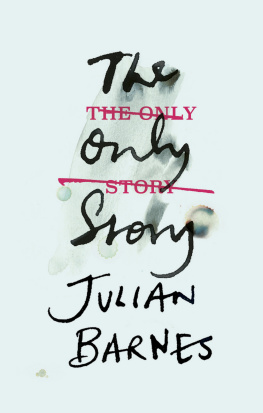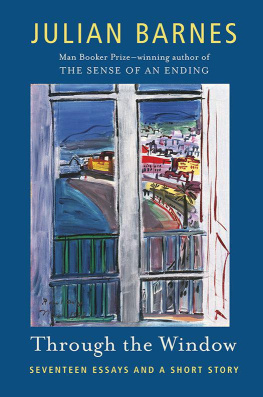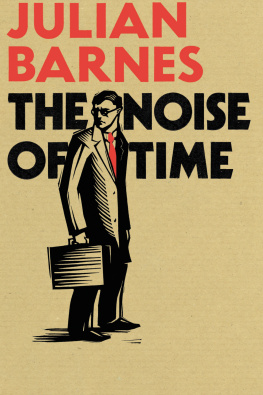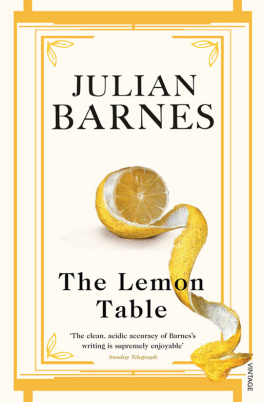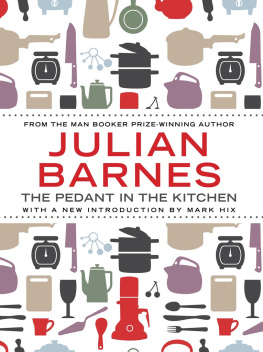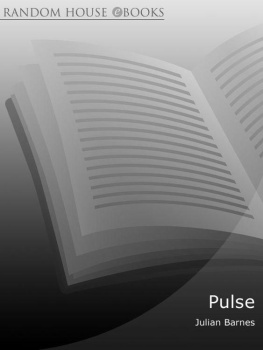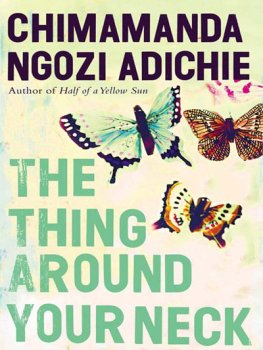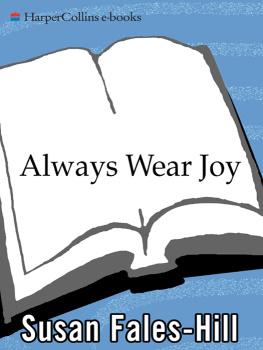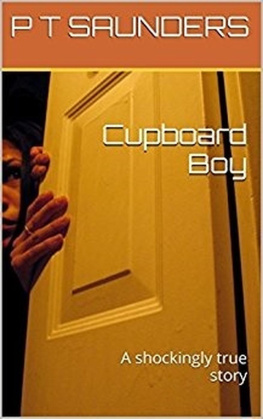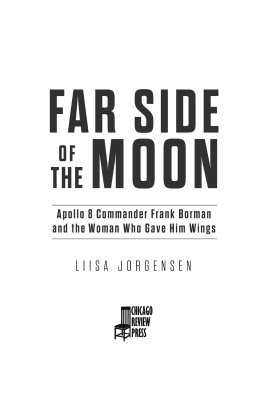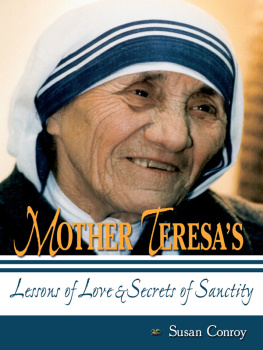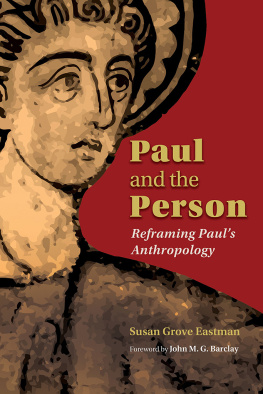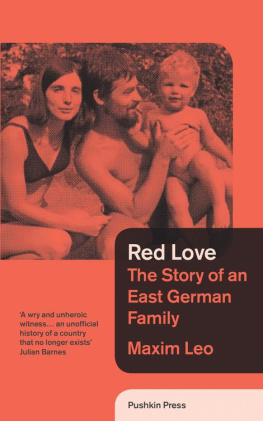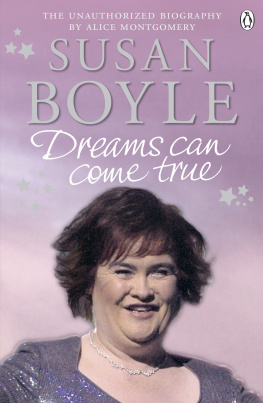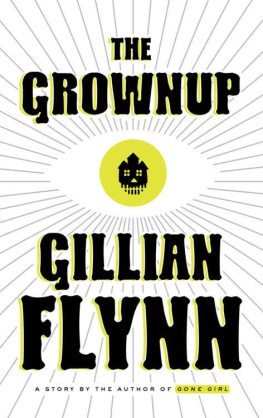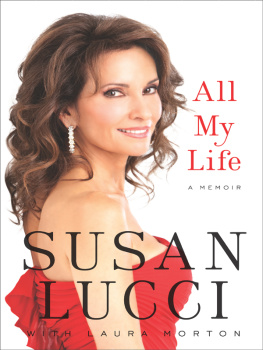Also by Julian Barnes
FICTION
Metroland
Before She Met Me
Flauberts Parrot
Staring at the Sun
A History of the World in 10 Chapters
Talking it Over
The Porcupine
Cross Channel
England, England
Love, etc
The Lemon Table
Arthur & George
Pulse
The Sense of an Ending
The Noise of Time
NON-FICTION
Letters from London 19901995
Something to Declare
The Pedant in the Kitchen
Nothing to Be Frightened Of
Through the Window
Levels of Life
Keeping an Eye Open
TRANSLATION
In the Land of Pain
by Alphonse Daudet
JULIAN BARNES
THE ONLY STORY

This ebook is copyright material and must not be copied, reproduced, transferred, distributed, leased, licensed or publicly performed or used in any way except as specifically permitted in writing by the publishers, as allowed under the terms and conditions under which it was purchased or as strictly permitted by applicable copyright law. Any unauthorized distribution or use of this text may be a direct infringement of the authors and publishers rights and those responsible may be liable in law accordingly.
Epub ISBN: 9781473554795
Version 1.0
1 3 5 7 9 10 8 6 4 2
VINTAGE
20 Vauxhall Bridge Road,
London SW1V 2SA
Vintage is part of the Penguin Random House group of companies whose addresses can be found at global.penguinrandomhouse.com.
Copyright Julian Barnes 2018
Cover design Suzanne Dean
Julian Barnes has asserted his right to be identified as the author of this Work in accordance with the Copyright, Designs and Patents Act 1988
First published by Jonathan Cape in 2018
penguin.co.uk/vintage
A CIP catalogue record for this book is available from the British Library
to Hermione
Novel: A small tale, generally of love.
Samuel Johnson
A Dictionary of the English Language (1755)
ONE
Would you rather love the more, and suffer the more; or love the less, and suffer the less? That is, I think, finally, the only real question.
You may point out correctly that it isnt a real question. Because we dont have the choice. If we had the choice, then there would be a question. But we dont, so there isnt. Who can control how much they love? If you can control it, then it isnt love. I dont know what you call it instead, but it isnt love.
Most of us have only one story to tell. I dont mean that only one thing happens to us in our lives: there are countless events, which we turn into countless stories. But theres only one that matters, only one finally worth telling. This is mine.
But heres the first problem. If this is your only story, then its the one you have most often told and retold, even if as is the case here mainly to yourself. The question then is: do all these retellings bring you closer to the truth of what happened, or move you further away? Im not sure. One test might be whether, as the years pass, you come out better from your own story, or worse. To come out worse might indicate that you are being more truthful. On the other hand, there is the danger of being retrospectively anti-heroic: making yourself out to have behaved worse than you actually did can be a form of self-praise. So I shall have to be careful. Well, I have learned to become careful over the years. As careful now as I was careless then. Or do I mean carefree? Can a word have two opposites?
The time, the place, the social milieu? Im not sure how important they are in stories about love. Perhaps in the old days, in the classics, where there are battles between love and duty, love and religion, love and family, love and the state. This isnt one of those stories. But still, if you insist. The time: more than fifty years ago. The place: about fifteen miles south of London. The milieu: stockbroker belt, as they called it not that I ever met a stockbroker in all my years there. Detached houses, some half-timbered, some tile-hung. Hedges of privet, laurel and beech. Roads with gutters as yet unencumbered by yellow lines and residents parking bays. This was a time when you could drive up to London and park almost anywhere. Our particular zone of suburban sprawl was cutely known as The Village, and decades previously it might possibly have counted as one. Now it contained a station from which suited men went up to London Monday to Friday, and some for an extra half-day on Saturday. There was a Green Line bus-stop; a zebra crossing with Belisha beacons; a post office; a church unoriginally named after St Michael; a pub, a general store, chemist, hairdresser; a petrol station which did elementary car repairs. In the mornings, you heard the electric whine of milk floats choose between Express and United Dairies; in the evenings, and at weekends (though never on a Sunday morning) the chug of petrol-driven lawnmowers.
Vocal, incompetent cricket was played on the Village green; there was a golf course and a tennis club. The soil was sandy enough to please gardeners; London clay didnt reach this far out. Recently, a delicatessen had opened, which some thought subversive in its offerings of European goods: smoked cheeses, and knobbly sausages hanging like donkey cocks in their string webbing. But the Villages younger wives were beginning to cook more adventurously, and their husbands mainly approved. Of the two available TV channels, BBC was watched more than ITV, while alcohol was generally drunk only at weekends. The chemist would sell verruca plasters and dry shampoo in little puffer bottles, but not contraceptives; the general store sold the narcoleptic local Advertiser & Gazette, but not even the mildest girlie mag. For sexual items, you had to travel up to London. None of this bothered me for most of my time there.
Right, thats my estate agents duties concluded (there was a real one ten miles away). And one other thing: dont ask me about the weather. I dont much remember what the weather has been like during my life. True, I can remember how hot sun gave greater impetus to sex; how sudden snow delighted, and how cold, damp days set off those early symptoms that eventually led to a double hip replacement. But nothing significant in my life ever happened during, let alone because of, weather. So if you dont mind, meteorology will play no part in my story. Though you are free to deduce, when I am found playing grass-court tennis, that it was neither raining nor snowing at the time.
The tennis club: who would have thought it might begin there? Growing up, I regarded the place as merely an outdoor branch of the Young Conservatives. I owned a racket and had played a bit, just as I could bowl a few useful overs of off-spin, and turn out as a goalkeeper of solid yet occasionally reckless temperament. I was competitive at sport without being unduly talented.
At the end of my first year at university, I was at home for three months, visibly and unrepentantly bored. Those of the same age today will find it hard to imagine the laboriousness of communication back then. Most of my friends were far-flung, and by some unexpressed but clear parental mandate use of the telephone was discouraged. A letter, and then a letter in reply. It was all slow-paced, and lonely.

